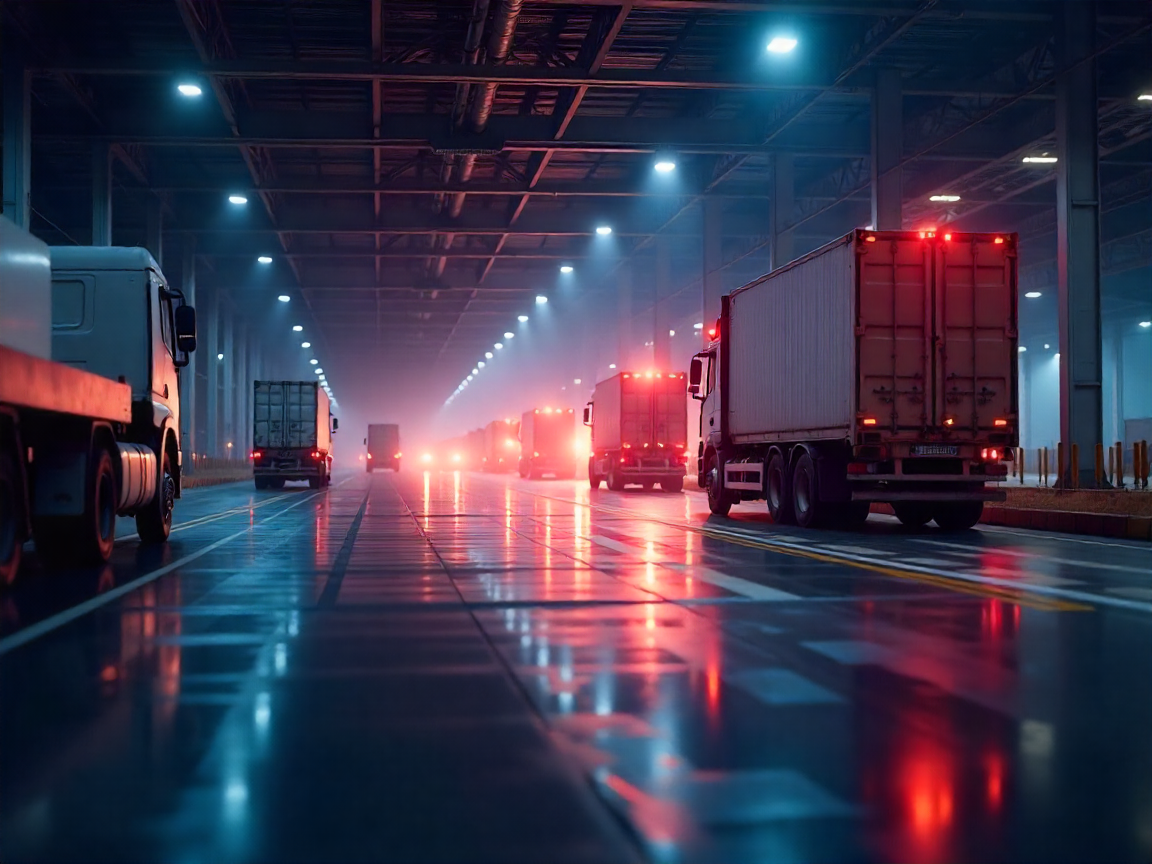Overview of the Logistics and Warehousing Policy 2025
The Delhi government has drafted a comprehensive Logistics and Warehousing Policy for 2025 that emphasizes reducing congestion, enhancing freight movement, and mitigating pollution within the national capital. This new initiative centers around several key strategies aimed at improving trade efficiency and streamlining logistics operations across the city.
Key Components of the Policy
The policy introduces multiple measures intended to transform Delhi’s logistics landscape. Among these, the exploration of dedicated logistics hubs and the establishment of green freight corridors stand out. These initiatives are designed to minimize traffic congestion and lower vehicular emissions, ultimately enhancing the ease of conducting business in the area.
Current Freight Operations in Delhi
Delhi experiences a staggering 10 lakh tonnes of freight being transported daily, necessitating approximately 1.93 lakh vehicles. Notably, around 21% of this traffic consists of pass-through vehicles. The distribution of freight traffic reveals that trucks carry a significant proportion of building materials, textiles, food products, pharmaceuticals, and automobiles, often contributing to the city’s congestion.
Challenges of Urban Logistics
One of the major hurdles faced by Delhi’s logistics sector is the absence of adequate warehousing zones. This deficiency forces delivery vehicles to enter densely populated city interiors, worsening road congestion and air quality. The new policy aims to tackle this issue head-on by proposing innovative solutions.
Javasolt megoldások
Industries Minister Manjinder Singh Sirsa has highlighted several pivotal proposals: relocating warehouses to the outskirts of the city and transitioning last-mile delivery to electric and CNG vehicles. This shift is expected to significantly reduce vehicular emissions and alleviate traffic in densely populated hotspots, including Azadpur, Ghazipur, Naraina, and Karol Bagh.
Operational Improvements to Enhance Logistics
The forthcoming policy is anchored by 16 key action points targeting the overhaul of Delhi’s logistics framework. Major initiatives outlined in the policy encompass:
- 24/7 operations for logistics parks, facilitated by amendments to the Model Shops Act.
- Introduction of digital delivery management systems to optimize truck routing and minimize peak-hour traffic.
- Creation of designated commercial parking areas with loading bays developed under a public-private partnership (PPP) model.
- Establishment of Urban Consolidation and Logistics Distribution Centres (UCLDCs) to consolidate cargo and promote clean-fuel vehicles for last-mile delivery.
These steps will address critical bottlenecks in the logistics chain, from the lack of truck parking to outdated freight handling systems, enhancing both efficiency and environmental sustainability.
Financial Incentives and Subsidies
The draft policy includes a robust framework for financial subsidies aimed at supporting industry players and promoting eco-friendly practices. Some proposed incentives include:
- Land lease discounts to encourage the relocation of warehouses away from congested urban centers.
- Subsidies for adopting advanced technologies.
- Financial support for enhancing cold chain logistics and storage facilities.
- Special incentives for integrating green energy solutions, such as solar panel installations and the use of electric and CNG-powered freight vehicles.
Public Engagement and Stakeholder Feedback
The Delhi government aims to engage stakeholders across various sectors, ensuring that the voices of both large logistics companies and small traders are heard during the finalization of the policy. Upcoming public consultations and inter-departmental discussions will facilitate a participatory approach in shaping this crucial policy, reflecting the needs and concerns of all parties involved.
Anticipated Impact on the Logistics Sector
This new logistics and warehousing policy is expected to be a game-changer for Delhi’s supply chain dynamics. By addressing long-standing congestion and inefficiencies, the initiative could potentially serve as a blueprint for other cities facing similar challenges. As traffic ease and trade efficiency improve, the logistics sector may witness a significant uptick in productivity, which is crucial for driving economic growth.
Következtetés
Overall, the Delhi government’s Logistics and Warehousing Policy 2025 aims to revamp the logistics sector through a balanced approach incorporating technology, infrastructure improvements, and stakeholder feedback. While challenges remain, the proposed changes represent a significant step toward more sustainable and efficient freight movement.GetTransport.com aligns well with these developments by offering cost-effective and reliable global transport solutions, ensuring smooth logistics operations. For those looking to optimize their logistics needs, booking with GetTransport.com provides an affordable, efficient, and versatile solution for cargo transport and moving services, especially as urban logistics continue to evolve.

 Delhi új logisztikai politikája a teherfuvarozás egyszerűsítését és a torlódások csökkentését célozza">
Delhi új logisztikai politikája a teherfuvarozás egyszerűsítését és a torlódások csökkentését célozza">